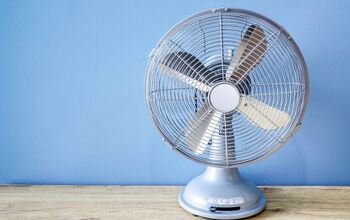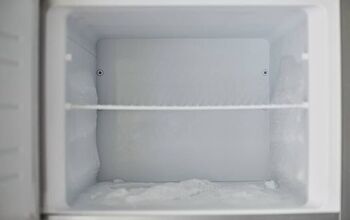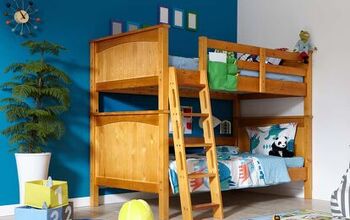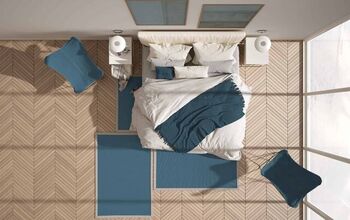Will Mice Come Near Me While I Sleep? (Find Out Now!)

Your bedroom is your personal sanctuary, and the place that you let your guard down after a long day to get a quality night’s rest. However, if you have mice infesting your home, it can be hard to unwind when you’re wondering: “Will mice come near me while I sleep?” Anyone who’s ever had a mice problem knows the uncomfortable feeling of laying in bed and hearing those tell-tale scratching sounds in your walls or the ceiling above your head.
Fortunately, it’s pretty rare to find droppings and other evidence of mice activity among your bed sheets. In fact, mice typically prefer to avoid all human contact and stick to the dark, shadowy, and sheltered areas of your home. However, there is still a chance that they may crawl on your bed if they’ve taken refuge in your bedroom. They may do this if the fastest place to travel from one place to another just so happens to be across your bed.
Although finding mice in your bed or them coming near you while you sleep is not a common phenomenon, there are ways to prevent them from even entering your bedroom in the first place. Continue reading as we dive deeper into whether or not mice will bother you while you sleep, how to keep them out of your bed, and some other tips and tricks for dealing with a mice infestation in your home.
Do You Need Pest Control Services?
Get free, zero-commitment quotes from pro contractors near you.

Will Mice Come Near You While You Sleep?
According to the United States Census Bureau, in 2020, nearly 14.8 million of the 124 million occupied housing units in the country reported seeing mice or rats. It’s also generally more common for homes to see rodents during the fall and winter months, as they scramble indoors in search of food and warmth. As your bedroom is one of the coziest rooms in your home, it’s understandable to wonder if mice will come near you as you are peacefully sleeping.
Put simply, mice can get into your bed. They are incredibly efficient climbers, meaning there are very few places that a mouse cannot reach if it really wants to. Your bed frame is likely made out of wood, which provides an easy climbing service for mice. Or, if your bedsheets touch the floor, this gives them a ladder to access your bed. Not to mention, mice can jump over a foot from the floor to another flat surface.
One of the main reasons that may drive a mouse to climb your bed is if they smell a food source. They may also use your bed because it is the fastest route to access food nearby. However, don’t fret because it’s very unlikely that a mouse will climb in bed with you – especially if they can sense that you are there.
In most cases, your presence alone is enough to keep mice away from you while you sleep. Generally speaking, mice tend to avoid human contact at all costs and are very shy creatures. They prefer to hang around out in your kitchen, near your pet’s food and water bowls, and in dark, shadowy corners of your home.
Signs of Mice in the Bedroom
Mice are very good at hiding, which makes it difficult to determine if they’ve taken up residence in your sleeping quarters. If you suspect that you may have a mouse problem in your bedroom, look out for any of the following signs of mice presence:
- Mouse droppings: Droppings tend to be the most tell-tale sign of mice activity in a particular location. Fresh droppings are generally dark and moist, drying out over time and turning a gray color. They are cylindrical in shape and about ¼ inch long, loosely resembling grains of rice.
- Scratching sounds: Mice are nocturnal, meaning they are more active in the evening. When you lay down to go to sleep in the evening, you’ll likely hear scratching or squeaking noises if you have a mice problem. These noises will usually be heard in the walls or ceiling, as the mice are traveling through the small spaces between joists to get from one part of the house to another.
- Foul odors: Unlike humans, mice don’t have a designated bathroom. Instead, they will urinate pretty much anywhere – even on the bed. If you detect a strong ammonia smell, you may have mice somewhere in your home.
- Teeth marks: Mice’s teeth grow constantly, causing them to need to chew on pretty much anything to wear them down, including plastic, wood, electrical wiring, and cables.
- Tears in material: If you notice sudden tears or holes in your bedding, clothing, fabrics, or other materials, there’s a good chance that mice are present in your bedroom.
Why Are Mice in My Bedroom?
You’ve detected signs that indicate you may have mice in your bedroom. So, why are they there? There are several reasons why there may be a mouse or two taking up shelter in your bedroom:
- Your bedroom is untidy or you tend to eat in your room.
- There is a nest in your bedroom.
- They are traveling through your bedroom to get somewhere else.
- The mouse has been scared into your bedroom and is now trapped.
Knowing the reasons why a mouse or mice are in your bedroom can help you strategize ways to keep them away for good.
How to Keep Mice Away from Your Bedroom
While it’s incredibly uncommon for mice to climb in your bed, it’s still possible. So, in order to avoid this incredibly unpleasant experience, let’s take a look at some of the ways that you can keep mice out of your bedroom:
1. Keep Your Room Clean
Mice are drawn to areas where people leave food out or don’t clean up crumbs. They aren’t picky eaters and will literally eat anything you leave out. So, in an effort to keep them out of your bedroom, avoid snacking in bed and leave all food in your kitchen. In addition to food, mice may also be attracted to the dirty clothes you leave in the corner of your bedroom. This provides them with a warm, dark, and comfortable nesting spot.
To avoid having a mice problem in your bedroom, and ultimately having a mouse climb in bed with you, keep your room clean at all times and empty your garbage frequently. By removing potential food sources and nesting spots, the mice will have fewer reasons to want to congregate in your bedroom.
2. Block Access
Mice can fit into holes as small as a quarter-inch wide, as only their skull needs to squeeze through. With this in mind, inspect your bedroom for any small, hidden holes at the base of your walls. Even if it doesn’t get used as a nesting spot, there’s a high chance that the mice will use the hole to get in your room. Once you find all the holes, seal them with substances such as caulk and steel wool. These materials are difficult for mice to chew through.
The gap at the base of your bedroom door is also another potential entry point for mice. Since this spot cannot be sealed up with steel wool or caulk, purchase a door sweeper online or from any local home improvement center to keep the rodents out of your bedroom.
3. Sleep with Your Cat
Cats are natural predators to rodents like mice. Not only are they excellent mice hunters, but they also give off an odor that mice register as a predatory and will typically avoid. Keeping your cat in your bed with you can give you the sense of security you need to get a good night’s rest and not worry about a mouse also joining you in bed.
Though, while cats have an excellent sense of sight and smell and can detect mice easily, most are too domesticated to chase mice for food. Even if they do catch one, mice breed incredibly fast – a female mouse gets pregnant roughly 5 to 10 times a year, with litters ranging from 6 to 8.
Do You Need Pest Control Services?
Get free, zero-commitment quotes from pro contractors near you.

4. Use Repellents
Chemical-based repellents are very effective at killing mice, but also present dangers to humans and pets. For this reason, many homeowners seek out alternatives to keep mice away from the bedroom, such as natural repellents. Consider the following home remedies to repel mice from your bedroom:
- Peppermint oil is one of the most common natural mice repellents, as the scent irritates the nasal passages of mice. Put a few drops on a cotton ball and place them in the areas the mice frequent.
- Ammonia mimics the odor of predators’ urine and can, therefore, serve as a repellent. Fill bottle caps with ammonia and leave them in areas the mice may pass through.
- Mothballs contain naphthalene and, when used in high doses, they may repel mice.
- Cayenne pepper, cloves, and camphor are other strong scents that may work as a natural repellent.
5. Consider Traps
Although old-fashioned, baits and traps are still effective at reducing mice infestations. With so many options to choose from, it’s crucial to choose the right trap that will be effective without causing unnecessary injuries.

Jessica considers herself a home improvement and design enthusiast. She grew up surrounded by constant home improvement projects and owes most of what she knows to helping her dad renovate her childhood home. Being a Los Angeles resident, Jessica spends a lot of her time looking for her next DIY project and sharing her love for home design.
More by Jessica Stone



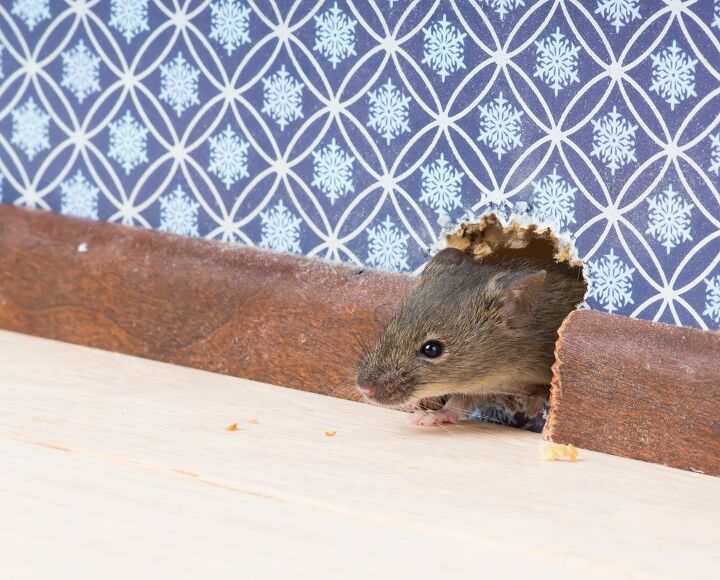






![The 5 Best Angle Grinders – [2022 Reviews & Buyer's Guide]](https://cdn-fastly.upgradedhome.com/media/2023/07/31/9071326/the-5-best-angle-grinders-2022-reviews-buyer-s-guide.jpg?size=350x220)




